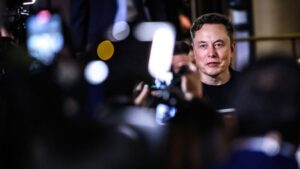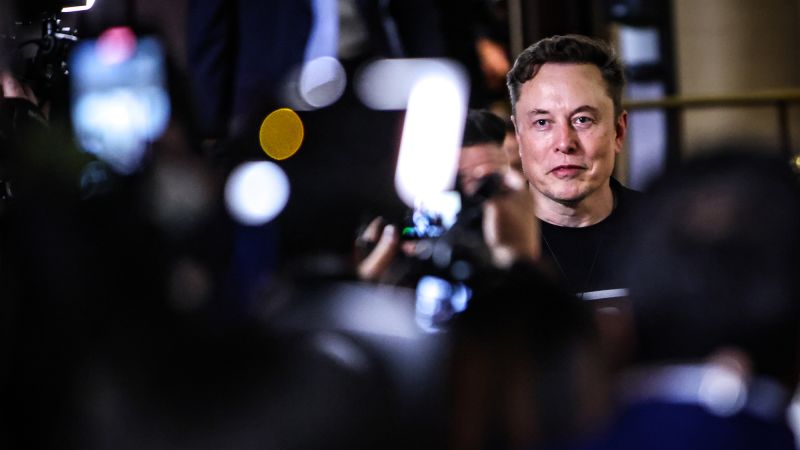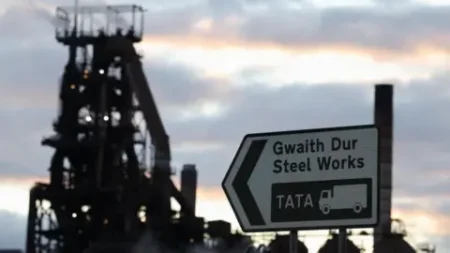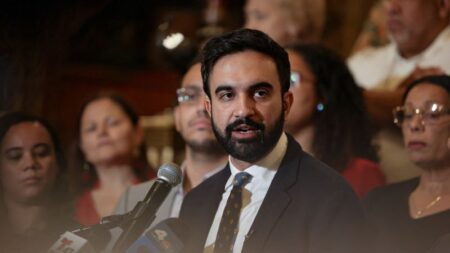Elon Musk, the CEO of Tesla and well-known tech entrepreneur, announced in a recent message on his social media platform, X, that the electric vehicle manufacturing giant would soon conduct a shareholder vote regarding a potential investment in his artificial intelligence startup, xAI. This news has sparked conversations among Tesla shareholders and observers of the AI landscape. Musk stated, “If it was up to me, Tesla would have invested in xAI long ago,” hinting at his strong inclination toward the venture.
The context surrounding this vote is essential, especially considering Musk’s long-standing commitment to developing xAI to compete with established AI entities such as OpenAI, Meta, and Google. His push for funding comes as xAI has already made significant strides in the AI sector, including acquiring the social media platform X in March, which has proven to be valuable for training its AI systems and distributing its specialized chatbot, Grok. To further bolster his AI ambitions, it was recently reported by the Wall Street Journal that SpaceX, another of Musk’s ventures, is set to invest $2 billion in xAI, indicating the depth of his commitment to this initiative.
However, any potential investment from Tesla presents more complexities due to its status as a publicly traded company. Tesla’s shareholders have voiced concerns over Musk’s various engagements, which extend beyond just Tesla, including his political endeavors and leadership roles across multiple companies, including SpaceX and Neuralink. This multifaceted involvement has led some shareholders to call for measures that would restrict Musk’s external commitments, urging the board to ensure he dedicates a minimum of 40 hours per week specifically to Tesla or establish “ground rules” to manage his distractions effectively.
There has also been speculation about a possible merger between Tesla and xAI, a notion that Musk has publicly dismissed in the past. He appears to be keen on keeping the endeavors separate while still advocating for collaboration through investment. The contrasting visions of expansion and focused management illustrate the ongoing balancing act Musk faces.
On the stock front, Tesla’s shares (TSLA) showed a slight uptick early on a Monday but continue to reflect a more considerable downturn, having dropped over 16% since the beginning of the year. This decline has increased the urgency for shareholders, especially those expressing dissatisfaction over what they perceive as Musk’s divided attention among his many ventures. In response to mounting pressure from investors, Tesla recently announced that it would hold its annual shareholder meeting on November 6, a decision made after shareholder demands for transparency regarding the delays in scheduling the event.
Meanwhile, the financial landscape of xAI continues to flourish, attracting investments from sources beyond Musk’s holdings. For example, in May, xAI secured $6 billion from notable investors, including Sequoia Capital, Andreessen Horowitz, and prominent Saudi investor Prince Alwaleed Bin Talal. This influx of funds has resulted in a remarkable valuation increase for xAI, which now stands at around $24 billion. When Musk announced the acquisition of X, he mentioned that the overall value of the consolidated company would reach around $80 billion. Reports from Bloomberg have indicated that xAI is also in the process of raising $10 billion with aspirations for a staggering valuation of $200 billion, underscoring the aggressive growth trajectory the company aims to achieve.
In conclusion, the forthcoming shareholder vote at Tesla regarding the investment in xAI represents a pivotal moment not only for Musk’s ambitions in the AI field but also for the ongoing dynamics between corporate governance, shareholder interests, and Musk’s expansive vision across multiple innovative sectors. As this narrative unfolds, the business and tech communities will undoubtedly be keenly monitoring the outcomes of both the shareholder vote and the evolving relationship between Tesla and xAI.










